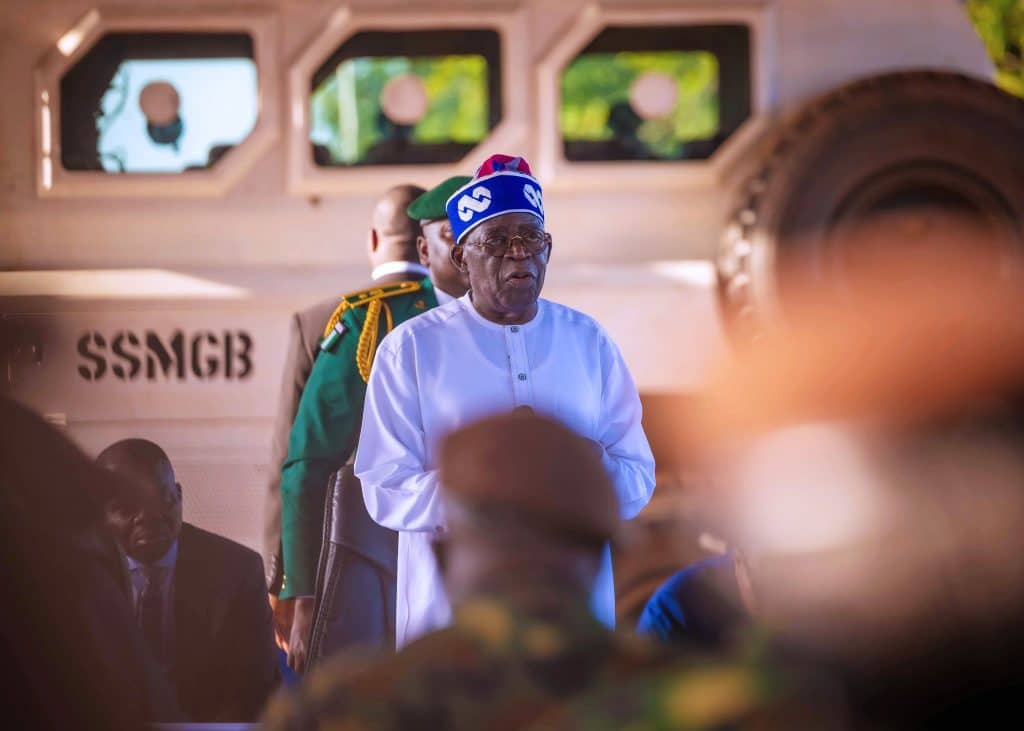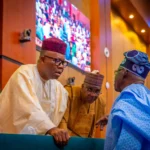Chairman of the Authority of Heads of State and Government of the Economic Community of West African States’ (ECOWAS), President Bola Tinubu of Nigeria, has stressed the need to prioritise diplomatic negotiations and dialogue as the bedrock of her approach to handle the military coup in the Republic of Niger.
He spoke on Thursday while declaring open the Second Extraordinary Summit of the regional body on the Socio-Political Situation in the Republic of Niger.
The body had scheduled another meeting after the expiration of the seven-day ultimatum the regional bloc issued for the reinstatement of President Mohamed Bazoum.
ECOWAS had slammed sanctions on Niger and a threatened possible military option; a move that was widely rejected, especially in Nigeria.
Niger Junta unveils New cabinet
ECOWAS’ Meeting on Niger Crisis kicks off in Abuja
But in his opening remarks, Tinubu said all parties involved, including the coup leaders, must be engaged in earnest discussions to convince them to relinquish power and reinstate President Bazoum.
He added that the political crisis in Niger not only posed a threat to the stability of the nation but also had far-reaching implications for the entire West African region.
The ECOWAS chairman said: “Today’s Summit provides a significant opportunity to meticulously review and assess the progress made since our last gathering. It is essential to evaluate the effectiveness of our interventions and identify any gaps or challenges that may have hindered progress. Only through this comprehensive assessment can we collectively chart a sustainable path towards lasting peace, stability, and prosperity in Niger. “Moreso, in reaffirming our relentless commitment to democracy, human rights, and the well-being of the people of Niger, it is crucial that we prioritize diplomatic negotiations and dialogue as the bedrock of our approach. We must engage all parties involved, including the coup leaders, in earnest discussions to convince them to relinquish power and reinstate President Bazoum. It is our duty to exhaust all avenues of engagement to ensure a swift return to constitutional governance in Niger.
“More specifically, as leaders of our respective nations, we must recognize that the political crisis in Niger not only poses a threat to the stability of the nation but also has far-reaching implications for the entire West African region. By remaining steadfast in our adherence to the principles of democracy, good governance, and the rule of law, we can restore peace, stability, and prosperity in the Republic of Niger, thereby fostering an environment conducive to growth and development for all.
“I am confident that this 2nd ECOWAS Extraordinary Summit on the Socio-Political Situation in the Republic of Niger will be a defining moment in our journey towards a stronger, more resilient, and integrated West Africa. Let us seize this opportunity to make a lasting impact on the lives of our fellow Africans as we strive to build a future defined by peace, progress, and prosperity.”
Tinubu added, “As you may recall, we called on the junta to rescind its decision of toppling a legitimate government. We proceeded to impose sanctions with the hope that this resolute measure would serve as a catalyst for the restoration of the constitutional order in Niger.
“Regrettably, the seven-day ultimatum we issued during the first Summit has not yielded the desired outcome. We have also made diligent efforts through the deployment of various ECOWAS mediation teams, to engage the military junta for a peaceful resolution of the political situation. One of the facilitators, former Head of State of Nigeria, General Abdulsalami Abubakar, would update us on the outcome of his mission to Niamey.
“Similarly, as part of a coherent diplomatic initiatives, Special Envoys were dispatched to non-ECOWAS nations, particularly Libya and Algeria. During these engagements, the Envoy designated for Libya had the privilege of an audience with the President of Libya. This discourse resulted in an unequivocal expression of support for the resolutions adopted by ECOWAS aimed at restoring constitutional governance in Niger. In Algeria, the Envoy was received by the Minister of Foreign Affairs on behalf of the President of the country.
“These initiatives are aimed at presenting a cohesive and united stance regarding the ongoing circumstances in Niger, thus showing a collaborative and concerted approach among African nations.
“Following the resolution of our previous Extraordinary Summit to initiate a meeting of the ECOWAS Chiefs of Defense Staff, the meeting of the Chiefs of Staff Committee was duly held from 2nd to 4th August, 2023.
“The outcome of that meeting, as well as a Memorandum by the President of the ECOWAS Commission on current socio-political developments in Niger, will be presented during this Summit. These will offer critical insights that will inform our collective decision-making process at this meeting….
“I extend my gratitude to each of you for your attention to this critical issue. I trust that our deliberations will be productive and fruitful, leading us to find an amicable solution to the political crisis in Niger. As we continue to work together in solidarity and harmony, we can ensure a prosperous future for the entire West African region.”
The ECOWAS Authority had during the last Extraordinary Summit, held on July 30, in Abuja, imposed a number of sanctions on Niger, particularly the coupists, and demanded for the immediate release of President Bazoum, his family and members of the his government, who are all being detained by the military.
The sanctions at the end of that Summit, as read by President of the ECOWAS Commission, Omar Touray, included “Suspension of all commercial and financial transactions between ECOWAS Member-states and Niger. Freeze all service transactions, including energy transactions. Freeze assets of the Republic of Niger in ECOWAS Central Banks Freeze of the assets of the Niger state and the state enterprises and parastatals in commercial banks.”
This morning, however, the Abdourahamane Tchiani-led junta, announced a 21-member cabinet, to be led by Ali Mahaman Liman Zeine, who was appointed as Prime Minister by the military.
Presidents of member-states attending the meeting include Julius Maada Bio of Sierra-Leone, Umaro Sissoco Embalo of Guinea Bissau, Alassane Ouattara of Ivory Coast, Nana Akufo-Addo of Ghana, Macky Sall of Senegal, Patrice Talon of Benin and Faure Gnassingbe of Togo.
The Gambia and Liberia are member-states being represented by their Ministers of Foreign Affairs.
Also attending are Presidents Evariste Ndayishmiye of Burundi and Mohammed Ould Ghazouani of Mauritania.

 Join Daily Trust WhatsApp Community For Quick Access To News and Happenings Around You.
Join Daily Trust WhatsApp Community For Quick Access To News and Happenings Around You.


